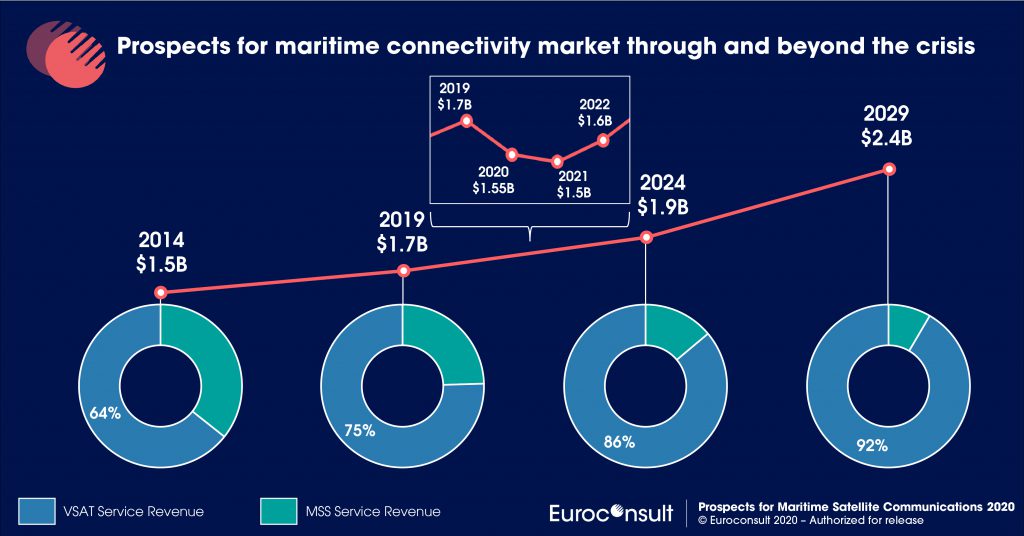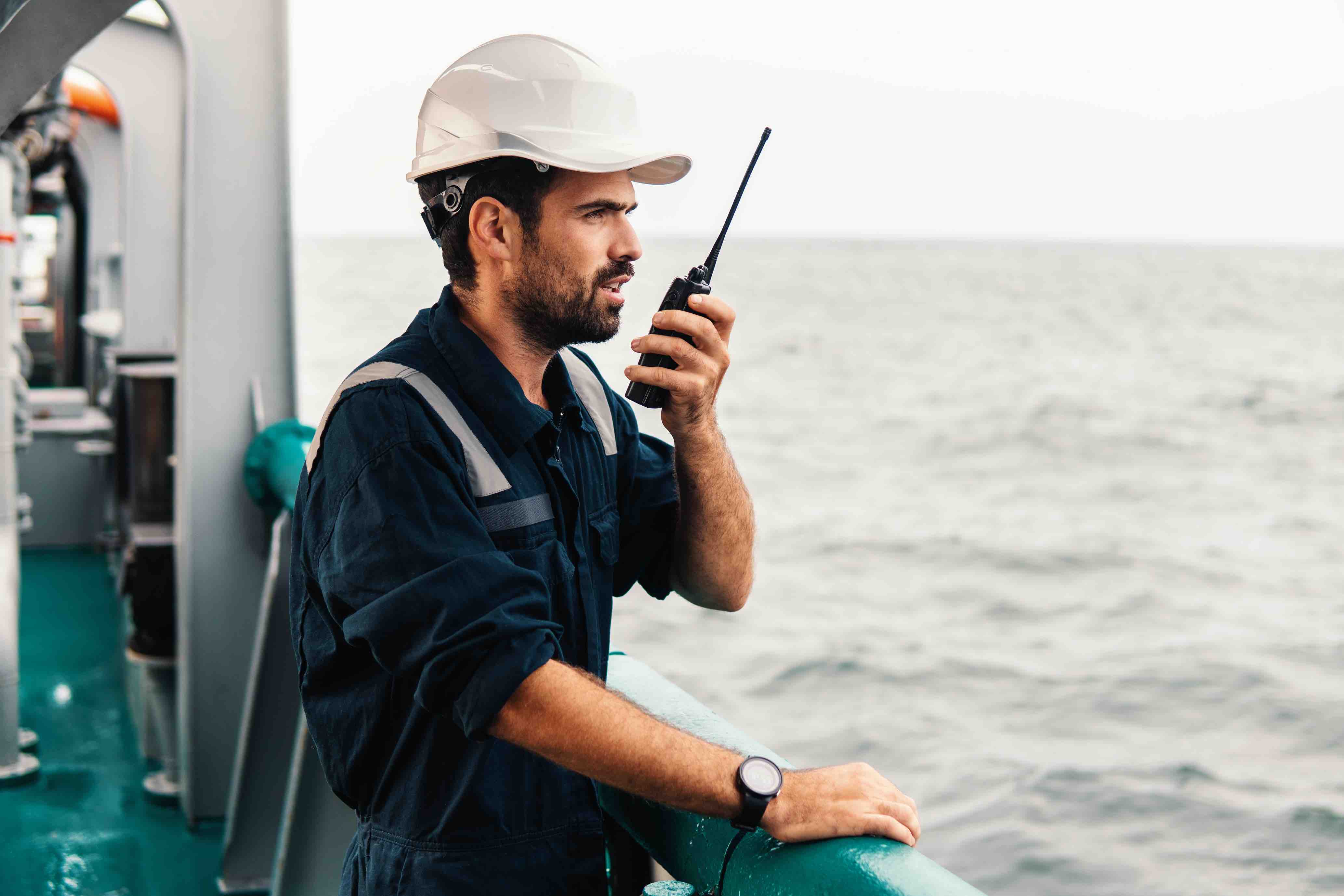Throughout history, seafarers have relied on various means of communication to stay connected with shore, other vessels and land. From flags and semaphores to radio and satellite communication, new advancements have transformed the way crew navigate and communicate. Today, satellite connectivity is transforming connectivity at sea, enabling real-time communication, navigation, and access to a wealth of information. For maritime companies, connectivity is not a nice to have but a must-have with over one-third of seafarers now considering access to digital technologies and connectivity as the most crucial factor when choosing employment.

After a decline in the sector due to Covid and the business freeze, the market is gradually regaining its dynamic and is set to grow fast by 2030. Reliable connectivity at sea has the potential to enhance maritime operations’ productivity and efficiency in numerous ways. It also ensures a better experience for those on board, contributing to crew safety and well-being.
Enhancing Operational Efficiency
The Internet of Things (IoT) is revolutionizing the mobility sector, significantly impacting the maritime industry. Sensors monitor mechanical and digital devices throughout the ship, providing precise data on fuel consumption, operating conditions, ship integrity, and power distribution. This level of insight enables maximum efficiency for each trip.
Additionally, key trends like digital twins—virtual representations of assets—are helping the marine industry improve maintenance performance. These technologies require extensive data collection and management. Reliable connectivity enables constant data collection, reporting, and remote access and monitoring.
Improving crew welfare and safety
According to the Maritime Labour Convention 2006 (MLC 2006), maritime companies and their vessels are obligated to ensure crew welfare. Beyond fulfilling a legal requirement, maintaining low staff turnover is strategically beneficial, as recruiting and training new staff can be costly.
To support crew welfare, companies need to provide mental and physical health precautions, recreational activities, and entertainment onboard. Reliable internet access is crucial, allowing seafarers to stay in touch with their families, access entertainment, and engage in social activities, thus combating feelings of isolation and loneliness. Digital platforms also provide access to mental health resources and support services, ensuring crew members receive the care they need, even in remote ocean areas. These measures significantly boost crew morale and efficiency.
Challenges
Despite 78% of operators providing internet access for crew, only 30% offer streaming services in communal areas. While the maritime industry has made significant strides in embracing digitalization and connectivity, many vessels still lack access to essential services such as streaming entertainment, educational resources, and telemedicine. Bridging this gap is crucial for enhancing crew welfare and optimizing operational efficiency and safety at sea.
At Moment, we leverage our expertise in the mobility industry and offline environments to provide top-tier entertainment options for maritime players. Our innovative onboard solutions, including server, IPTV, and digital signage integration and deployment, as well as infotainment and services platforms accessible on passengers devices, ensure a more pleasant and connected experience at sea. We provide a tailored content catalog, from licensing to integration, making the maritime experience more enjoyable and efficient than ever before.
Discover our solutions and transform your maritime operations with advanced connectivity and digital services.



